 * Caption by Peace Philosophy Center
* Caption by Peace Philosophy CenterPhoto from "Henoko hama tsushin" blog. 14 US tanks landed on Henoko beach on the early morning of January 27. Dogongs move around in the reef at night, so landing before dawn poses great danger to them, according to the blog.
_____________________________________
Ten Thousand Things
Sunday, January 30, 2011
Henoko, Okinawa: 14 U.S. Marine amphibious assault tanks crush coral and anemone; trample sea grass; & disturb dugongs during feeding hours
A Henoko blogger posted this Jan. 27:
When I went to the beach after dawn today, I saw fourteen U.S. Marine amphibious assault tanks lined on Henoko beach which we Okinawans cherish so much.
According to a local witness, the tanks left dock landing ship(s) offshore. In the dark, with glaring searchlights on, the tanks disembarked moved towards the beach, in the direction of Camp Schwab.
These amphibious assault tanks have caused many accident; crushed coral; and trampled down the sea grass that the Okinawan Dugongs eat. The assault tanks disperse oil, soot, noises around the coral.
What a violent act to set fourteen tanks with their weaponry in the sea during the hours (rather than another time) when Okinawan Dugongs are active! Usually, the dugongs that live offshore of Henoko are active at night, inside the coral reef.
Therefore, even the adamant Okinawa Burea of Defense Policy could not make their environmental assessments until one hour after dawn to assess the serious impact the ecosystem of the sea where the dugongs live.
* Many thanks to M. Sato for this translation
_____________________________________
Peace Philosophy Center
Ministry of Defense files complaint against Nago
Jan. 29, 2011
On January 28, the Japanese Ministry of Defense filed a complaint against Nago City for their refusal to allow them to conduct a survey on the inhabitation of animals and plants off the coast of Henoko, Nago, on the basis of the Administrative Appeal Act. Nago's mayor Inamine Susumu has made his position clear that he opposes the US/Japan plan to build a new Marine base in place of Futenma Air Station over the cape of Henoko. Inamine disallowed such survey because it would be done on the premise that a new base would be built. Ryukyu Shimpo expects that if Inamine dismisses this complaint, the Ministry of Defense may file an administrative lawsuit against Inamine.
According to Nakachi Hiroshi, professor (administrative law) of the University of Ryukyus, the intent of the Administrative Appeal Act was to provide an opportunity for ordinary citizens to complain against deeds of administrative entities, and should not be applied to the state. Nakachi wonders if this is a political performance by the central government to indicate that they are making efforts to build a base despite the local opposition, but such performance should bring no political benefits to the government, Nakachi says. Nago will probably dismiss the complaint, and in that case, it is unknown whether the state will file a lawsuit against them. If they do, it will be reminiscent of the 1995 lawsuit by then Prime Minister Murayama Tomiichi against then Governor of Okinawa Ota Masahide, who refused to sign the contract to renew land lease for US military use, after hundreds of Okinawan military landowners refused to sign and their municipal leaders refused to sign on their behalf.
Okinawa's Governor Nakaima Hirokazu avoided stating a clear opinion on this issue. Nakaima won the election on the platform that he would call for Futenma Air Station to be moved outside the prefecture, but he failed to clearly express his opposition to the plan to build a replacement base in Henoko. With Nago and the state at the stalemate, Nakaima will have to make his position clear, sooner or later.
(In summary of discussion on Ryukyu Shimpo, pp. 1-2, on January 29, 2011)

![[URGENT PLEA: In Update] EMERGENCY in GANGJEONG Since AUG. 24, 2011](http://2.bp.blogspot.com/-3iz8k-USXVY/TlmRYhhIYtI/AAAAAAAAL2c/9dbF85ZIkIs/s227/jejusit.jpg)

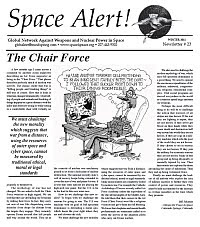

![[Solidarity from Japan for the Jeju] 253 individuals and 16 groups/organizations](http://2.bp.blogspot.com/_gnM5QlRx-4c/TR_YeNVE1yI/AAAAAAAAHWQ/ARyf6oQN0S0/S227/jeju_12_10j.jpg)
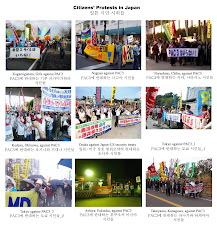
![[Translation] Korean organizations' statement: Immediately cancel the joint ROK-US drill Nov 26](http://2.bp.blogspot.com/_gnM5QlRx-4c/TPOE8VKXHFI/AAAAAAAAGlM/8lryt-8sFjc/S227/1.jpg)
![HOT! [Hankyoreh Hani TV] Beneath the Surface: the investigation into the sinking of the Cheonan](http://4.bp.blogspot.com/_gnM5QlRx-4c/TOI83qht8aI/AAAAAAAAGXU/22SW6Q5ntV8/S227/HaniTV%2BCheonan.gif)



![[Translation]Statement against illegal inspection and unjust lay-off by the Kunsan USAFK!(Nov_2010)](http://4.bp.blogspot.com/_gnM5QlRx-4c/TOPLsVkZMqI/AAAAAAAAGZs/3YnnckIyAaY/S227/gunsan%2Bprotest.gif)
![[Translation] Korean organizations' statement against dispatching special force to the UAE on Nov.](http://4.bp.blogspot.com/_gnM5QlRx-4c/TOP95zHXlCI/AAAAAAAAGak/E0Ug1XtUFfM/S227/antiwarpeace.jpg)
![[Translation] Stop, Joining MD!: South Korean activists' statement and writing on Oct. 25, 2010](http://3.bp.blogspot.com/_gnM5QlRx-4c/TOP7Es4_2sI/AAAAAAAAGac/eWVMPD-U4p0/S227/StopMD.jpg)
![[In Update] People First, NO G-20 (Nov. 6 to 12, Korea)](http://2.bp.blogspot.com/_gnM5QlRx-4c/TJd53XBzHlI/AAAAAAAAFQo/ldO9JPE3eqo/S227/left21_G20.jpg)
![[International Petition] Stop US helipad plan in Okinawa to save great nature](http://4.bp.blogspot.com/_gnM5QlRx-4c/TKC2AHRNzBI/AAAAAAAAFUo/yGWXODTw_uM/S227/yanbaru_w.jpg)

![[Global Network] against the first launch of Quasi-Zenith Satellite, Japan, on Sept. 11, 2010](http://4.bp.blogspot.com/_gnM5QlRx-4c/TIowa1boy4I/AAAAAAAAFDI/82rAi98uq-c/S227/Qzss-45-0_09.jpg)

![[In update] Some collections on the Koreans’ protests against the sanction & war on Iran](http://4.bp.blogspot.com/_gnM5QlRx-4c/TJMvke6t8zI/AAAAAAAAFO4/tamQ8LUnOOA/S227/No+Sanction+on+Iran.jpg)
![[Three International Petitions] to End the Korean war and peace treaty(or peace resolution)](http://1.bp.blogspot.com/_gnM5QlRx-4c/THef7bzWxYI/AAAAAAAAE44/wwdzSDfYhdw/S227/border.jpg)
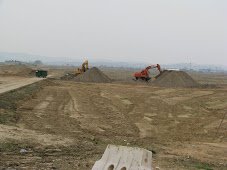


![[Collection of Documents] No Base Learning and Solidarity Program_Korea(June 14 to 20, 2010)](http://1.bp.blogspot.com/_gnM5QlRx-4c/TCTvVuN8NeI/AAAAAAAAEek/8vBJVaHdk10/S227/No-Base-banner.jpg)
![Site Fwd:[John Hines] A U.S. Debate coach’s research trip on the Issues of Korea](http://3.bp.blogspot.com/_gnM5QlRx-4c/TINCO36mzzI/AAAAAAAAE_w/Rds12NcBOXM/S227/Jeju-Peace-Tour.jpg)


![[News Update] Struggle Against the Jeju Naval Base since Jan. 18, 2010](http://1.bp.blogspot.com/_gnM5QlRx-4c/S1vvWaP25uI/AAAAAAAACkg/QvpW1tgOlKM/S226/scrum1.jpg)


![[Urgent] Please spread the Letter!: There was no Explosion! There was no Torpedo! (May 26, 2010)](http://4.bp.blogspot.com/_gnM5QlRx-4c/S_9JmsKEU7I/AAAAAAAAEP8/sAWjSPqxzUI/S227/grounded.jpg)
![Text Fwd: [Stephen Gowans]The sinking of the Cheonan: Another Gulf of Tonkin incident](http://1.bp.blogspot.com/_gnM5QlRx-4c/TAL_FtYKQ-I/AAAAAAAAERE/NEEMijiEcRM/S227/lee-myung-bak.jpg)
![[Japan Focus]Politics in Command: The "International" Investigation into the Sinking of the Cheonan](http://1.bp.blogspot.com/_gnM5QlRx-4c/TBMJ2syJzyI/AAAAAAAAEZU/uTYZccU5vyk/S227/wen_jiabao_and_lee_myungbak.png)
![[Japan Focus] Who Sank the SK Warship Cheonan? A New Stage in the US-Korean War and US-China](http://2.bp.blogspot.com/_gnM5QlRx-4c/S_iQ2vE5ZpI/AAAAAAAAEOU/Oo1SPcAe8FE/S227/buoy_map.gif)
![[Updated on 12/13/10] [Translation Project] Overseas Proofs on the Damages by the Military Bases](http://4.bp.blogspot.com/_gnM5QlRx-4c/S-qSj59gPLI/AAAAAAAAEGM/mwjlFtPE-jo/S227/missile.jpg)
![[International Petition] Close the Bases in Okinawa](http://3.bp.blogspot.com/_gnM5QlRx-4c/S8-z3DYNwNI/AAAAAAAADo4/OswTSchK09M/S227/2.jpg)

![[In Update]Blog Collection: No Korean Troops in Afghanistan](http://4.bp.blogspot.com/_gnM5QlRx-4c/SwnlLD9IewI/AAAAAAAAB9E/oUPssnpNidA/S226/No-Troops-to--Afghanistan.jpg)
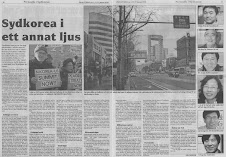

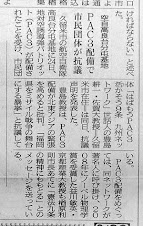

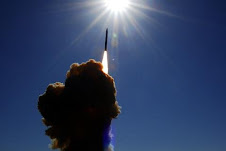






No comments:
Post a Comment